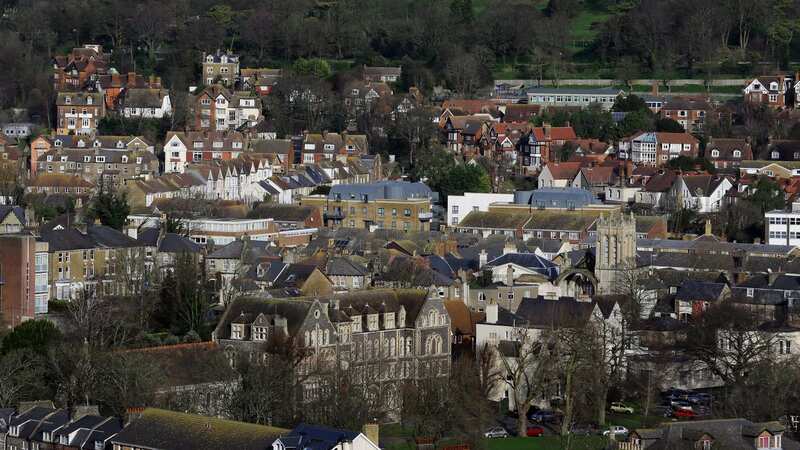Average price of a home is now only £1,800 off peak of June, 2022, says Halifax

The average UK house price went up by 0.4% in February, marking the fifth month in a row of increases, according to an index.
Property prices grew by 1.7% over the year, compared with 2.3% the previous month, said Halifax. In February, the average UK house price was £291,699, about £1,000 more than the previous month.
Kim Kinnaird, director at Halifax Mortgages, said these numbers "continue to suggest a relatively stable start to 2024 and align with other promising signs of increased housing activity, such as mortgage approvals. In fact, the average price tag of a home is now only around £1,800 off the peak seen in June 2022. While it is encouraging that we've seen growth in recent months, what happens next remains uncertain."
"Although lower mortgage rates, alongside expectations of Bank of England interest rate cuts this year, should help buyer confidence in the short term, the downward trend on rates is showing signs of fading. Even with growing wages and inflation falling back, raising a deposit and affording a sizeable mortgage remains challenging, especially for those looking to join the property ladder, so it remains a possibility that there could be a slowdown in the housing market this year."
In the Budget on Wednesday, Chancellor Jeremy Hunt announced some changes to property taxes. These include lowering the higher rate of capital gains tax for houses from 28% to 24%, starting in April 2024. The government thinks these changes will make landlords and people with second homes want to sell up.
 8 money changes coming in February including Universal Credit and passport fees
8 money changes coming in February including Universal Credit and passport fees
This could mean more homes are available for different kinds of buyers, like those trying to buy their first home. Amy Reynolds, who is in charge of selling homes at Antony Roberts in London, said: "The market continues to pick up momentum after a relatively quiet 2023, with a flow of committed buyers and a strong pipeline of serious applicants, which bodes well for a busy spring market."
She said: "While the capital gains tax reduction might encourage some landlords to sell, it could also exacerbate the shortage of rental properties we are seeing, leaving tenants in a difficult position, especially those already facing high rents."
Nicky Stevenson, who runs the estate agent group Fine & Country, said: "It will be interesting to see whether the Chancellor's capital gains tax cut announcement in the Budget encourages teetering landlords to sell their properties. A rush of new listings would inject more energy into the housing market and may reignite demand from first-time buyers who have been struggling to afford a home in this high interest rate environment."
Sam Mitchell, who is the boss of Purplebricks, shared: "The housing market has been on the path to recovery in recent months, helped along by consecutive holds on interest rates from the Bank of England and banks actively competing on mortgage rates, but this recovery remains fragile."
Jonathan Hopper, the top person at Garrington Property Finders, mentioned: "While the supply of homes for sale is still limited in some areas, the market has finally become more free-flowing. 'For sale' signs are becoming an increasingly common sight, and we are seeing rising interest from both buyers and sellers."
Tom Bill, who looks after UK residential research at estate agent Knight Frank, pointed out: "Financial markets are expecting fewer rate cuts than the start of this year due to stubborn wage growth. his mixed picture means transactions should increase versus last year and we expect prices to rise by 3%, but the last two months of weaker inflation signals have been a useful reminder that asking prices need to remain realistic."
"The regional breakdown shows how affordability remains a big constraint on the market, with better-value areas seeing stronger price growth over the last year."
Nathan Emerson, who leads the property professionals' group Propertymark, suggested: "In order to persuade more people this is the year to sell their home, the Bank of England should start considering reducing interest rates to ease borrowing costs for aspiring homeowners."
Here are the average house prices across the UK and how much they've changed in a year, according to Halifax:.
East Midlands, £239,294, up by 0.9%.
 Big Four banks made £20billion in 9 months as households battled interest rates
Big Four banks made £20billion in 9 months as households battled interest rates
Eastern England, £329,927, down by 0.8%.
London, £536,996, up by 1.5%.
North East, £171,294, up by 4.2%.
North West, £232,128, up by 4.4%.
Northern Ireland, £195,956, up by 5.0%.
Scotland, £205,523, up by 2.8%.
South East, £385,228, down by 0.6%.
South West, £300,133, up by 0.2%.
Wales, £221,132, up by 4.1%.
West Midlands, £255,333, up by 2.4%.
Yorkshire and the Humber, £208,128, up by 3.2%.
Read more similar news:
Comments:
comments powered by Disqus

































